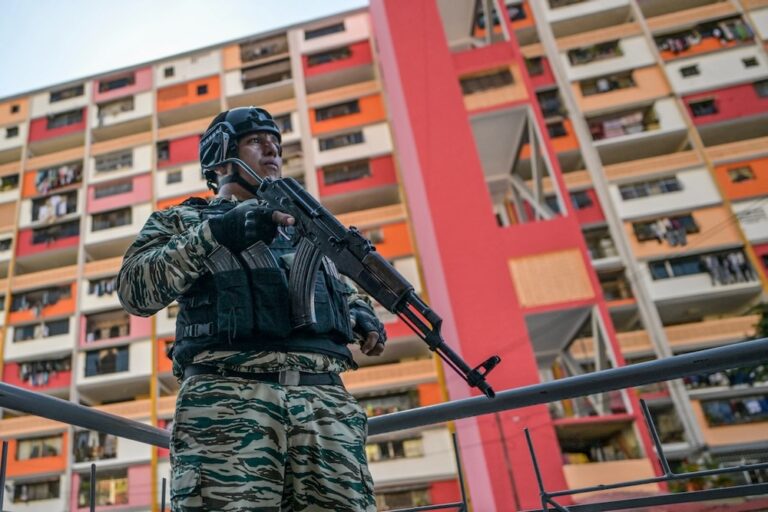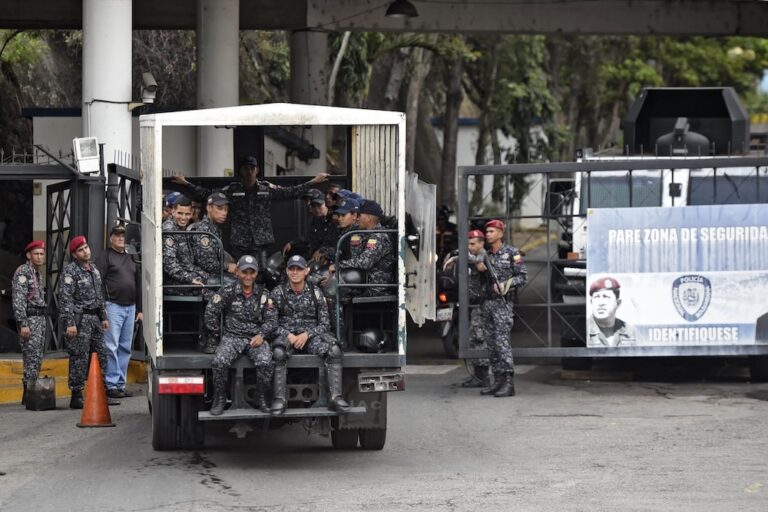Venezuelans are some of the few citizens in the Americas who do not have a legal right to ask their government for information, since it refuses to create a law that makes its administrative functions transparent or accountable to the public.
This statement was originally published on sipiapa.org on 9 December 2014.
The Inter American Press Association (IAPA) today condemned a court ruling in Venezuela which it said contravened constitutional principles on freedom of expression and transparency, and amounted to “judicial censorship contrary to the people’s right to information about matters of public interest.”
On December 4 the Supreme Court’s Administrative Policy Tribunal rejected a lawsuit filed by Espacio Público, a non-profit civic organization, that sought information from the government on blockages and restrictions imposed on several information services’ Web sites earlier this year, among them twin.com, pastebin.com, bit.ly and the app zello.com.
Relying on constitutional clauses on the right to information, Espacio Público called on the Ministry of Popular Power for University Education, Science and Technology to explain the reason for the blockage of the Internet in Táchira state last February.
Given repeated denials of information by the Ministry, it filed a lawsuit on September 18 with the Supreme Court. The Court issued an unexpected ruling by not accepting the lawsuit, and said that “the requestor will have to expressly give the reasons for requiring the information and justify the request being in proportion to the use that it seeks to make of it.”
IAPA President Gustavo Mohme declared that “precisely the principles on access to information, on which laws on such access in the entire world have been based, establish that no one has to justify how he or she will use the information, while the government has the obligation to provide it, any time a member of the public requests it.”
Mohme, editor of the Lima, Peru, newspaper La República, added, “This current ruling ends up becoming judicial censorship, and contrary to the people’s right to information about matters of public interest.”
For his part, the chairman of the IAPA’s Committee on Freedom of the Press and Information, Claudio Paolillo, declared that “this ruling demonstrates the deficiency of the Venezuelan government which relies on a judicial system that is more concerned with defending the government than defending and protecting the rights of its citizens.”
Paolillo, editor of the Montevideo, Uruguay, weekly Búsqueda, said that Venezuelans are some of the few citizens in the Americas who do not have a legal right to ask their government for information, since it refuses to create a law that makes its administrative functions transparent or accountable to the public.
The IAPA noted the trend in Latin America and the Caribbean to adopt laws on access to public information and governmental transparency, including Antigua and Barbuda, Belize, Brazil, Chile, Colombia, Dominican Republic, El Salvador, Guatemala, Guyana, Honduras, Jamaica, Mexico, Nicaragua, Panama, Paraguay, Peru, St. Vincent, Trinidad & Tobago and Uruguay.
Besides Venezuela, such laws do no exist in Argentina, Bolivia and Ecuador.


